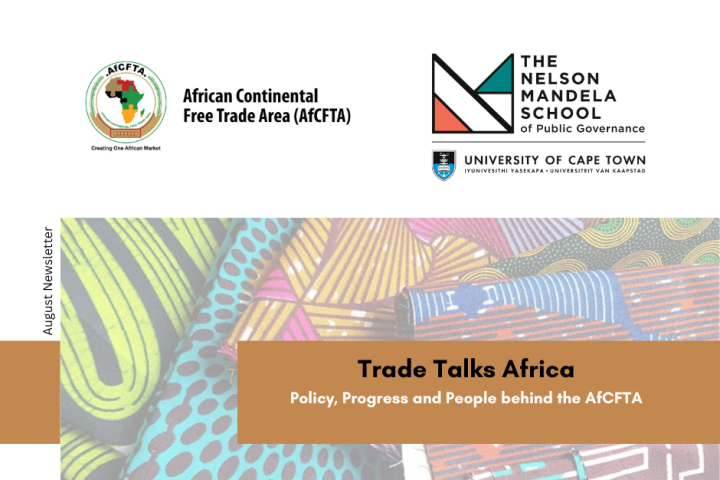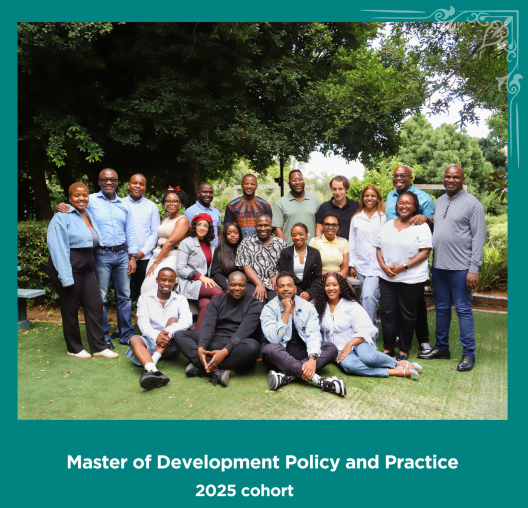A New Voice for African Trade Integration | Issue III

A New Voice for African Trade Integration
The August issue of Trade Talks Africa spotlight significant developments affecting the implementation of the African Continental Free Trade Area (AfCFTA). There has been increased urgency following the United States' imposition of heavy tariffs on African exports. This has sent shockwaves through industries such as agribusiness, automobile manufacturing, and textiles, highlighting the vulnerability of African economies to external shocks. In light of this situation, there are increasing calls for a quicker implementation of AfCFTA to enhance intra-African trade and build economic resilience.
In this third edition of the newsletter, we continue to highlight important milestones: Liberia launched its National AfCFTA Implementation Strategy in August, outlining a five-year plan for inclusive participation; and Kenya’s Ministry of Foreign and Diaspora Affairs has entered a strategic partnership with Real Sources Africa to implement digital trade platforms. These developments underscore the challenges and opportunities facing Africa as it works toward an established single market at a pivotal juncture.
Stay informed. Stay engaged.
Trade Talks Africa | Editor-in-chief
Dr Noncedo Vutula
———————————————————————————————
New U.S. Tariff regime hits African exports
Effective 7 August 2025, a broad range of U.S. tariffs, ranging from 10% to 41%, will impact approximately 20 African countries, thereby eliminating the preferential access previously granted under the African Growth and Opportunity Act (AGOA). Countries like South Africa, Algeria, and Libya are particularly vulnerable, facing tariff rates of 30%, which could jeopardise their export competitiveness. This situation has intensified calls for a quicker rollout of AfCFTA to promote intra-African trade and strengthen economic resilience. Only a handful of nations, including Nigeria, Morocco, and South Africa, have successfully exported significant volumes of value-added products throughout the continent. As global exporters seek new markets beyond the U.S., Africa has the potential to capitalise on new trade opportunities if regional integration under AfCFTA is effectively leveraged.
Liberia launches AfCFTA implementation strategy

Liberia, in collaboration with the United Nations Economic Commission for Africa (UNECA) and the United Nations Development Programme (UNDP), has officially launched its National Implementation Strategy for AfCFTA (2025–2030). This strategy aligns with Liberia's inclusive development agenda and aims to enhance trade competitiveness, support micro, small, and medium-sized enterprises (MSMEs), promote gender and youth inclusion, and ensure environmental sustainability.
Kenya's Foregn Ministry signs landmark pact with Real Sources Africa

In a groundbreaking move, Kenya’s Ministry of Foreign and Diaspora Affairs has signed a memorandum of understanding (MOU) with Real Sources Africa, the country's official AfCFTA trading company. This partnership aims to enhance verified transactions for small and medium-sized enterprises and facilitate digital trade across African markets. The agreement will enable the implementation of digital trade platforms, including Biashara Link, Deal House, Policy Tracker, and Asili Markets, throughout Kenyan embassies and missions. This initiative will empower Kenya to respond to market demands, validate trading partners, and convert leads into viable cross-border agreements. It also supports the execution of the AfCFTA’s Digital Trade Protocol by incorporating digital solutions into trade facilitation. Kenya is positioning itself as a leader in digital trade integration by providing trusted digital verification, enabling seamless market access, and promoting transparent deal-making. This serves as a model for other member states to harness technology for greater efficiency, inclusivity, and trust in intra-African trade.
———————————————————————————————

———————————————————————————————
What's happening at the Nelson Mandela School?

The Nelson Mandela School of Public Governance is currently inviting applications for its Master’s in Development Policy and Practice. This programme equips emerging leaders, policymakers, and change-makers with the skills necessary to design, implement, and evaluate effective development policies across Africa.
Are you ready to advance your career in public policy and make a meaningful impact across the continent? Applications for the 2026 MDPP cohort are now open! Apply now for the 2026 academic year—click here to learn more.
———————————————————————————————
Research Spotlight
- A recent commentary by Prof Carlos Lopes from the T20 South Africa series emphasises that unilateral trade actions, such as the extensive “reciprocal” tariffs imposed by the U.S., are undermining trust in consensus-based global trade governance. In Africa, exporters face unpredictable and harsh tariff shocks, highlighting the urgent need for regional mechanisms like the AfCFTA to ensure stability, market integration, and resilience amid a fragmented global trading system. Read the full commentary here.
- In a recent UN DESA Issue Brief, Prof Carlos Lopes explores the structural challenges facing global trade in 2025, including increasing protectionism, disruptions in supply chains, and the weakening of multilateral trade frameworks. The brief underscores the importance of regional trade agreements, such as the AfCFTA, in ensuring stability and promoting economic integration in a fragmented global trade landscape. Read the full article.
- In their 2025 paper, Prof Faizel Ismail and Dr Seutame Maimele examine how South Africa, as G20 President, can leverage its leadership to advocate for a Just Transition in Africa. They propose engaging with the EU on its Carbon Border Adjustment Mechanism (CBAM) and collaborating with G20 members to reform global trade and climate systems, ensuring that Africa's development aligns with sustainable and equitable practices. Read the full paper here:
- The Africa Food Systems Report 2025 (AFSR 2025) includes a chapter on Food Baskets and Corridors, co-authored by Dr Noncedo Vutula. This chapter positions food baskets and trade corridors as strategic instruments for unlocking intra-African agrifood trade under the AfCFTA.
Let's stay connected: subscribe to the Nelson Mandela School mailing list and connect with us on LinkedIn.
